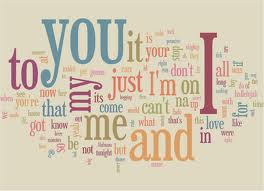 The first thing we need to address when we think of lyric writing concepts is exactly where we are in the writing process. There are three pillars to a song: lyrics, melody, and harmony or chord progression. And while it might be obvious, the order in which we create each pillar affects the next one dramatically. Therefore, there is no cute and tidy, one size fits all approach to lyrics, but a pliable, constantly evolving approach that reflects where we are in the song process.
The first thing we need to address when we think of lyric writing concepts is exactly where we are in the writing process. There are three pillars to a song: lyrics, melody, and harmony or chord progression. And while it might be obvious, the order in which we create each pillar affects the next one dramatically. Therefore, there is no cute and tidy, one size fits all approach to lyrics, but a pliable, constantly evolving approach that reflects where we are in the song process.
A very high percentage of the aspiring songwriters who contact me got their beginnings writing verse. It is important to note that verse is not a lyric. Poetry stands alone, and each syllable creates the meter that gives the language its rhythmic context. In a lyric, depending on the melody it’s set to, there can be more than one note per syllable, and even several notes depending on the style. In addition, melody introduces the concept of timing, which means a word resting on a note could be held for more than one count, maybe even more than one measure. As a result, it can be a challenge considering a lyric apart from the melody that will express it.
If you are a lyricist alone, you will usually function in one of three ways. Like Bernie Taupin, you will have a creative blank slate and will create a lyric that will be put to music at a later date. You will have certain responsibilities to the musical outcome depending on how you originate the lyric. If you set lyrics to an existing song, like Oscar Hammerstien, you are faced with an entirely different proposition; one that includes both a predetermined topical “feel” and metrical structure of notes that require words to ride upon them. Finally, if you write with a group that has jammed out a backdrop of chords that is a compelling rhythmic feel and is inspiring, but has yet to have a melody attached, you rest somewhere between the blank slate of the first example and the limitation of writing lyrics to a fixed melody and chord feel. Here your greatest challenge is to pick a topic or theme that embodies the progression that you are writing to, and is an accurate conveyance of the style of music the backdrop is in. What I mean by that is that different genres have different ways to communicate their message from a language point of view, so be mindful of whether you’re writing a country song, a hip hop song, or a metal song.
Almost every consult I do with a songwriter who writes lyrics first has the same challenge. Their lyrics are out of metrical alignment. I’m not forcing you into any particular organization or metrical pattern here, just urging you to notice that from verse to verse in your lyric, the meter needs to match. (If you’re unsure what I mean about meter, there will be an article just on meter alone.) What I’m asking you to consider is that it is the most common occurrence that the verse melody is uniform, which means it is sung the same from verse to verse. If it is sung the same, that means there is a fixed melody with fixed accent points or pulses. You need to have a match in the number of syllables and where those syllables are accentuated when using multi-syllabic words. You can have rhythmic fluctuations between lines 1, 2, 3, & 4 within the verse 1, but verse 2 needs to match what you did in verse 1.
If you begin with this idea in mind, you will create a lyric that is much easier to put a melody to. If you pay attention to what the Beatles did, they can just write out the lyrics to the side of the sheet music because each section is a virtual exact match to its preceding counterpart. When the lyrics and the melody are an exact match like this, the music grabs the listener more, and they have a visceral response to the predictability of the verse pattern. It feels comfortable and they feel they know what’s coming next.
When the meter in your lyrics doesn’t match in the verses, you are forced to introduce all kinds of additional incidental notes and grace notes to make the lyrics fit the song. I’ve heard songs, especially in the R & B niche, that were so free-form that the verses were almost unrecognizable from one to the other. That makes for an inconsistent song.
For now, do yourself a favor and do some tight edits on the meter of your lyrics to make the verses match. This will make it so much easier for you or your co-writer to set the melody and chords later. This idea of rhythmic and metrical alignment of your verses is one of the most important lyric writing concepts and will singlehandedly elevate your lyric writing.

 Follow me on Twitter
Follow me on Twitter 
